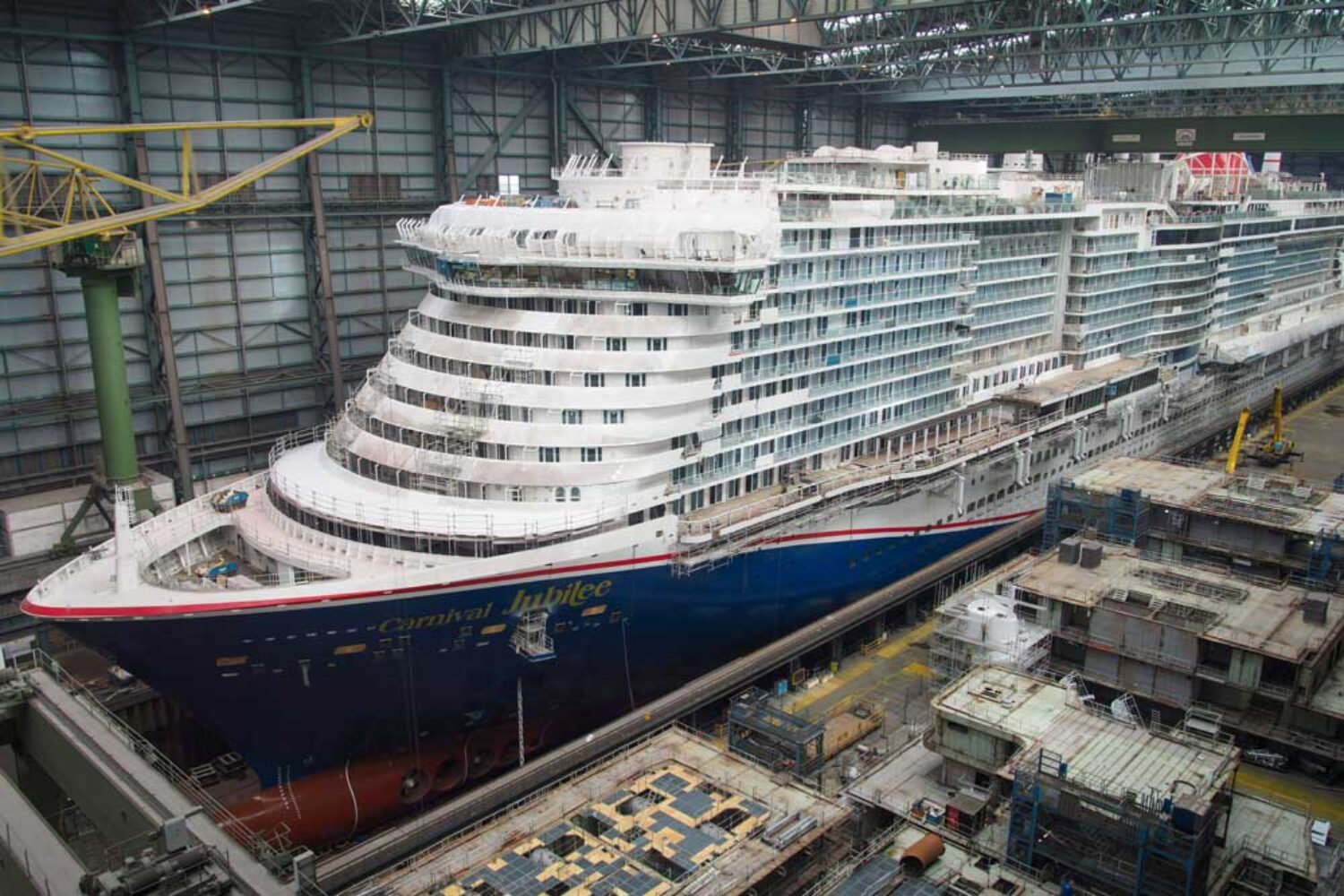It was a successful year for shipbuilding in Germany. Incoming civilian orders amounted to €10.7 billion.
But that’s not all: the German Shipbuilding and Ocean Industries Association (VSM) reports growth in the repair business, naval shipbuilding and high global demand for German ships. This creates room for maneuver – also with a view to geopolitical developments.
The majority of shipyards in Germany are working at high capacity. Harald Fassmer, VSM President and Managing Director of Fassmer werft, spoke of well-filled order books at the association’s annual press conference. A new record was set at TKMS, the Meyer Werft shipyard in Papenburg is pleased with new orders from the cruise industry, and the FSG and Nobiskrug shipyards can “look to the future with confidence again” after the takeover, said Fassmer. The VSM repeatedly emphasizes that a strong civilian shipbuilding sector is just as important as the navy in order to ensure a competitive cluster. The USA, on the other hand, had neglected this balance, even if Trump’s plans to rebuild the industry were a “potentially interesting blueprint” for shipbuilding in Germany.
Critical view of China
“Time is of the essence,” Fassmer continued, directing attention to China’s activities: the government under Xi Jinping is massively expanding its navy – by 2027, it should be possible to conquer the island of Taiwan. China is also over-dominant in civilian shipbuilding: 60% of all new orders go to Chinese shipyards. This massive expansion of commercial shipbuilding was the key to building up naval capacity. Many of the large civil shipyards are also active in naval shipbuilding. “All of this happened by design,” says the VSM. “The civil-military merger was first mentioned in 2015 and has been a national strategy since 2017 at the latest.”

In addition to China, there are also other hotspots, including in German waters – keyword cable sabotage in the Baltic Sea. According to Fassmer, the geopolitical situation poses enormous challenges for shipbuilding. “As if we didn’t have enough problems of our own.” However, new opportunities could also arise from the crises.
Together with the new German government, the VSM says, the newly created scope should be used “with determination and drive”. Shipbuilding and marine technology are indispensable key skills for any resilient industrial nation. Germany is dependent on its maritime sovereignty.
VSM: Securing Germany’s maritime sovereignty
While shipbuilding is flourishing in China, it has declined massively in Europe. The VSM believes that this is due to the decades-long regulatory treatment of the industry, which resulted in the loss of almost two thirds of capacity. Nevertheless, the industry has succeeded “in a remarkable way” in maintaining and developing capacity. The focus in the German market, for example, is on high-end markets such as cruise ships and superyachts, which account for a large proportion of new orders. “We deliver a small number of very expensive ships,” says VSM Managing Director Reinhard Lüken. German manufacturers dominate the market in both segments. The situation is different in the military sector: German naval shipbuilding capacities could only have been secured to the existing extent through successful marketing in (friendly) foreign countries.

In order to secure Germany as a shipbuilding location, politicians must now focus on resilience issues. “It is clear that the existing capacities are not sufficient to guarantee the maritime sovereignty of Germany and Europe,” says the VSM. Research, development and innovation must not be ignored. It is also important to speed up the procurement procedures of public employers (civil and military). Process costs of up to 40% of the purchase price show the potential for savings. “We need a renewed focus on the best technical solution instead of maximum testing security.” (JW)













